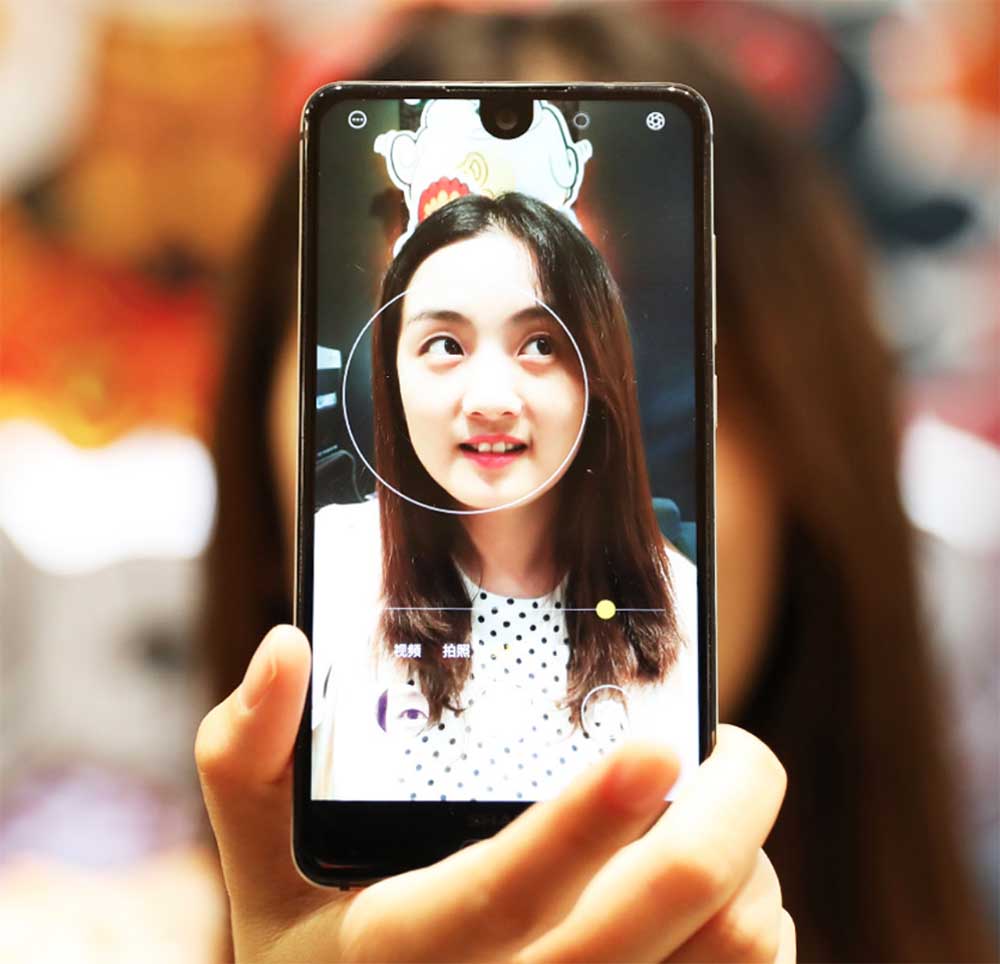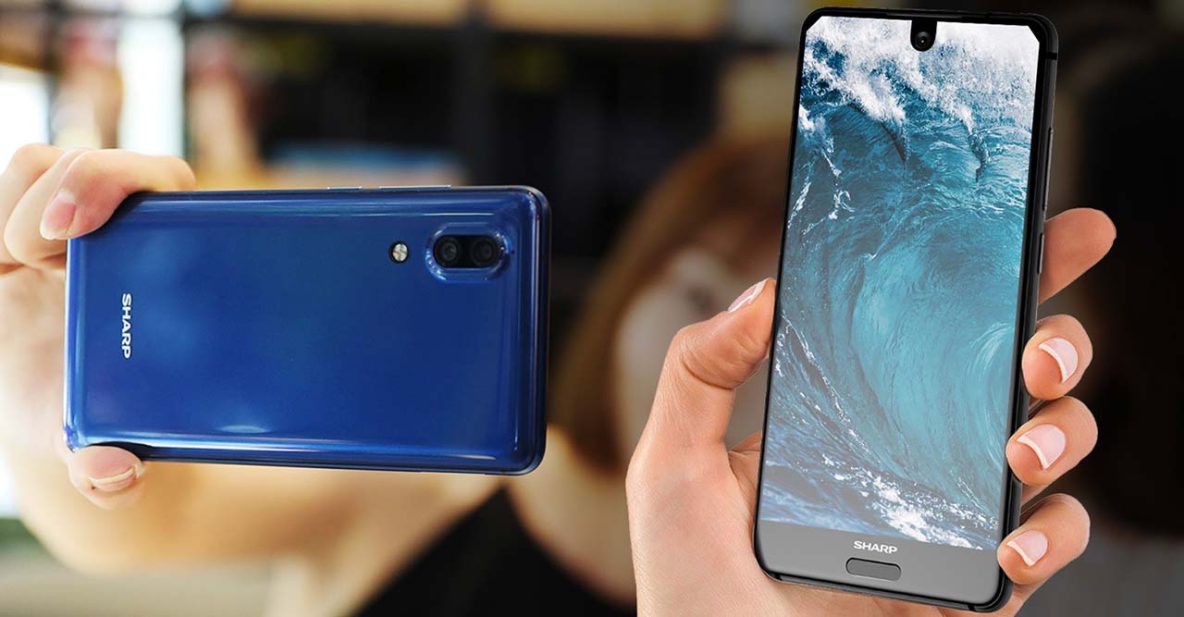However, it appears one brand has beaten the American tech giant to the punch as far as launching a phone with a full-screen display and a vertical dual-camera alignment. (Not that the latter is something any manufacturer should be proud of.) Enter the Sharp Aquos S2, which debuted recently in China.
SEE ALSO: Sharp Aquos 2 complete specs
The biggest talking point here is also the most obvious: display. The 5.5-inch, 2K screen has almost zero bezels on the top and on either side. There’s a small cutout for the selfie camera, sure, but otherwise? This is about as bezel-less a screen as you can get today. The internals of the phone’s sensors and front-facing camera — they have to go somewhere, right?

The biggest talking point here is also the most obvious: display.
Most leaks suggest this year’s iPhone will feature a nearly bezel-less design without a physical home button and with just the right amount of space to fit the secondary camera and earpiece. If accurate, the next iPhone would look prettier, as the front-mounted fingerprint reader of the Sharp Aquos 2 takes away from the aesthetic appeal of a borderless handset.
READ ALSO: This might just be what the iPhone 8 looks like
Round the back, it has two cameras arranged vertically, with the flash positioned below the two lenses. Unlike the rumored iPhone 8, though, they haven’t been made to sit almost flush with a rear glass panel that curves along all four edges. The cameras are equipped with 12- and 8-megapixel sensors, while the front cam is 8 megapixels.
As for the specs, the Sharp Aquos 2 is said to be the first smartphone to ship with Qualcomm’s new Snapdragon 630 system-on-a-chip, which is produced using a 14-nanometer process for improved performance and efficiency. It supports the latest Qualcomm Quick Charge 4 standard over a Type-C connector.
A top-end version sporting a faster Qualcomm Snapdragon 660 chip is also available and comes with 6GB of RAM and 128GB of storage (the regular variant has 4GB RAM and 64GB ROM). Both editions have a custom interface on tap based on Android Nougat. Pricing is set at 2,499 yuan (about P18,900 or $373) or 2,799 yuan (P21,200 or $418), depending on the hardware configuration.
Image via Chinese Engadget
Share this Post



